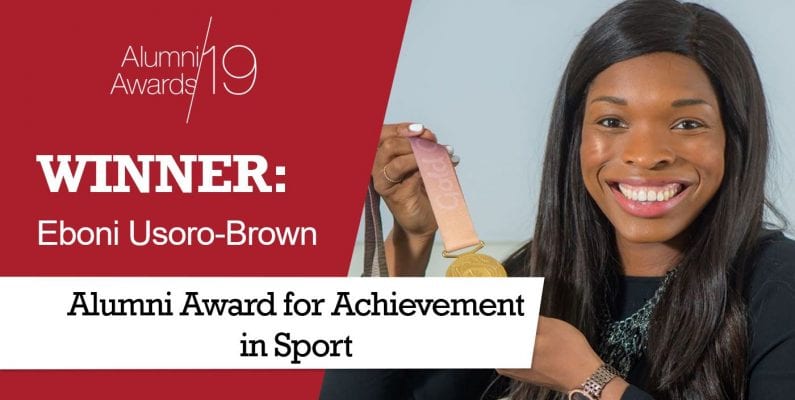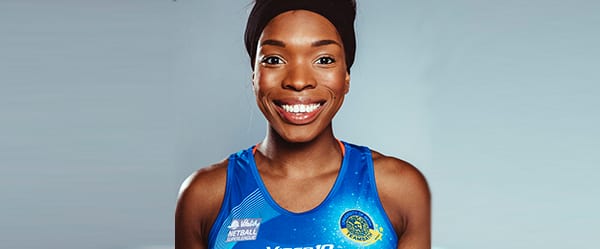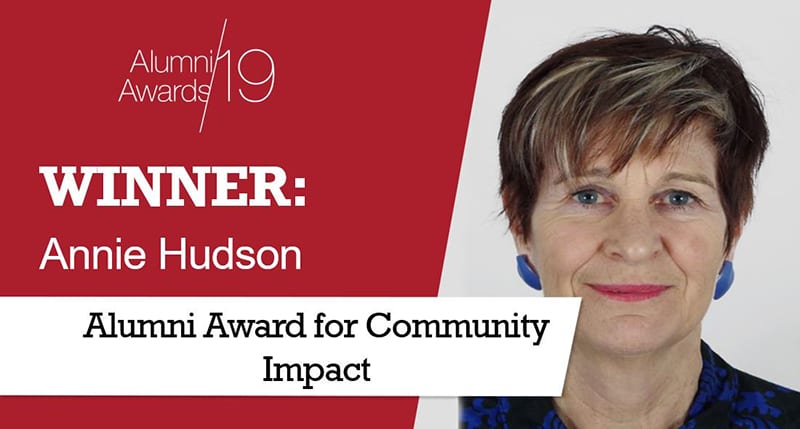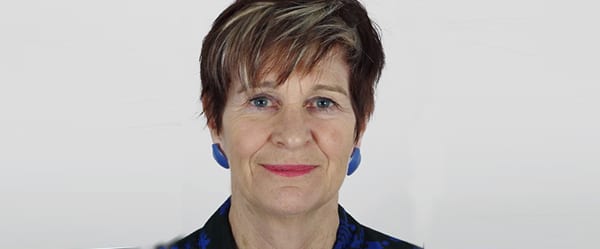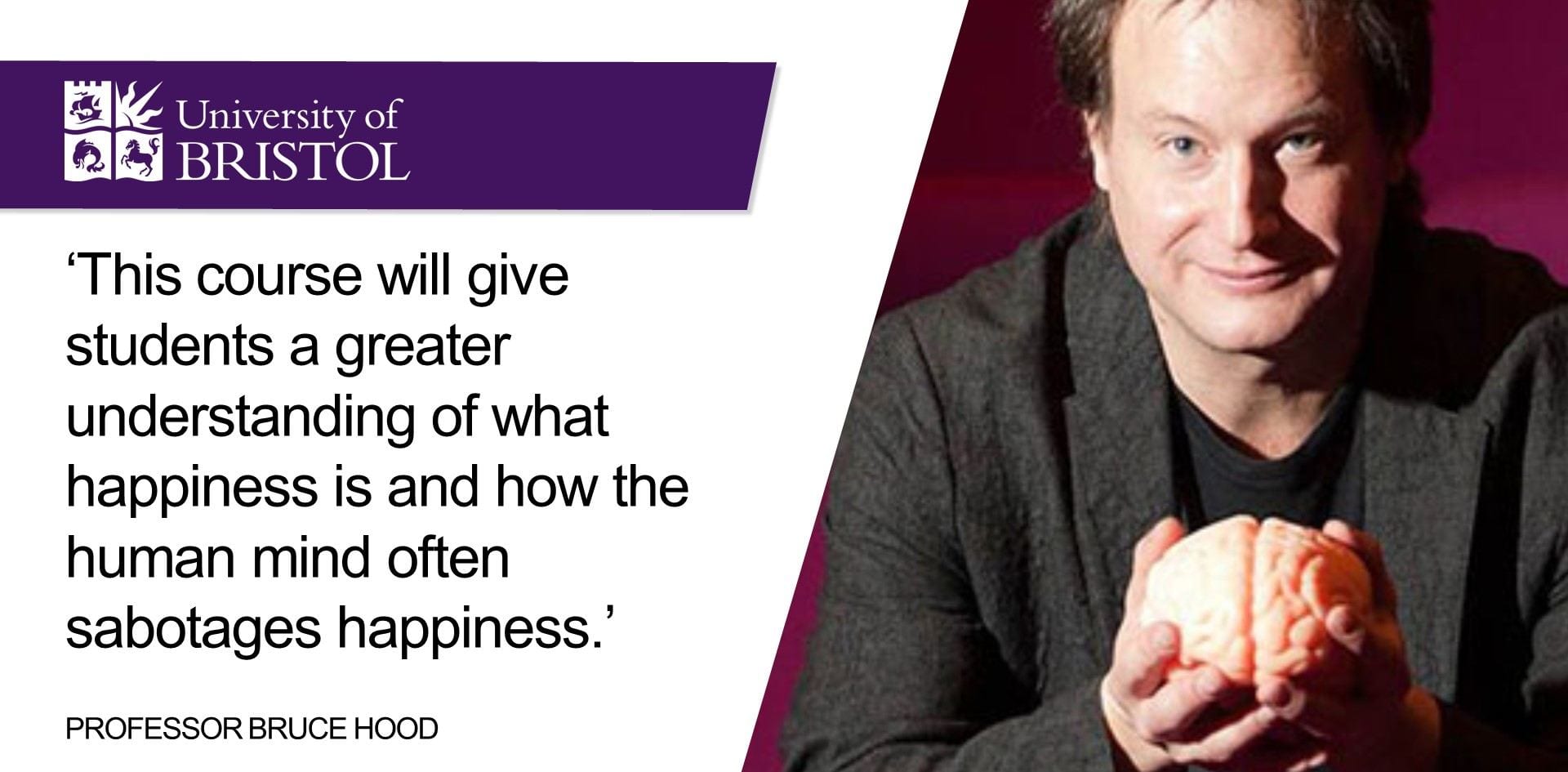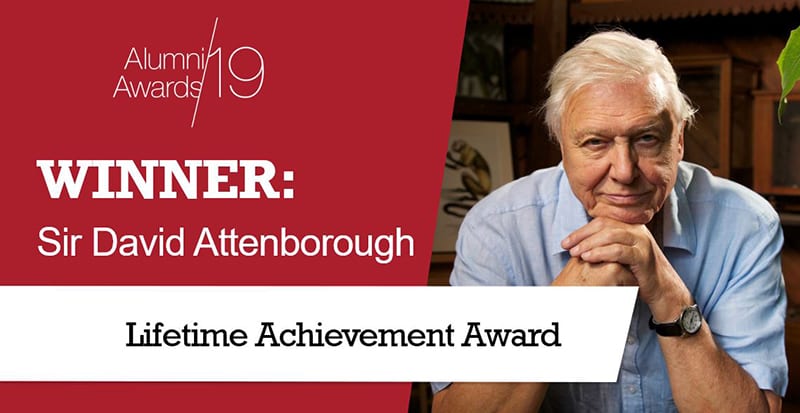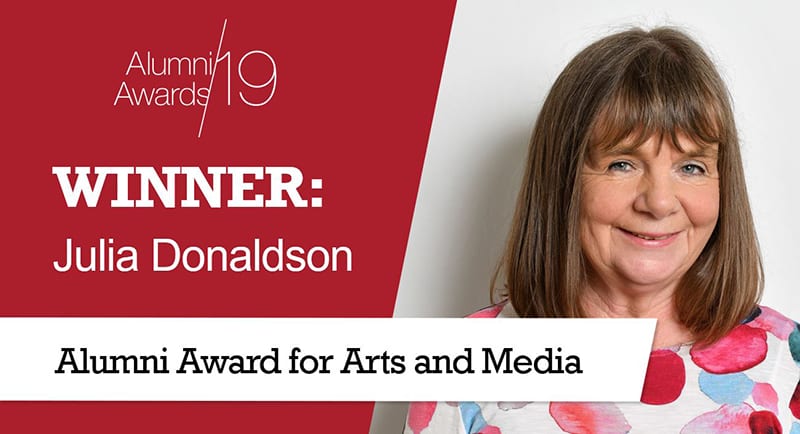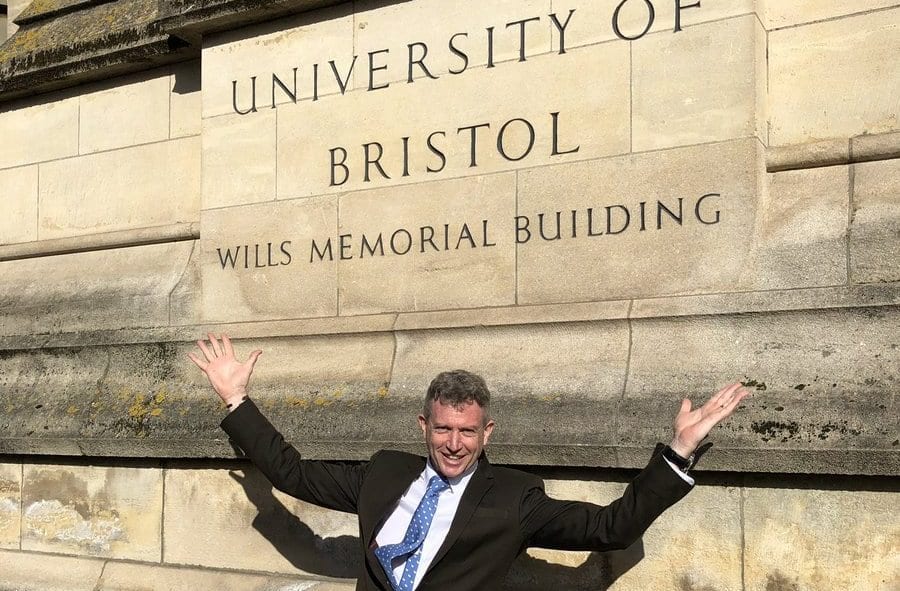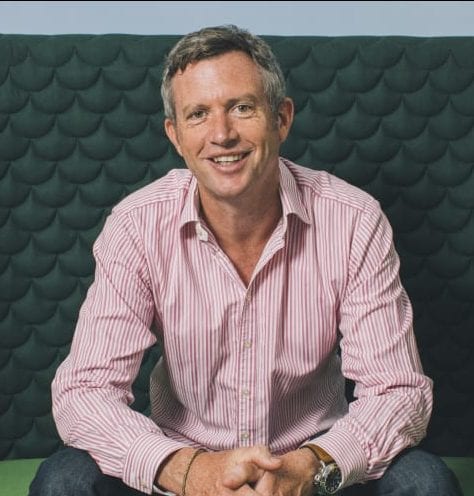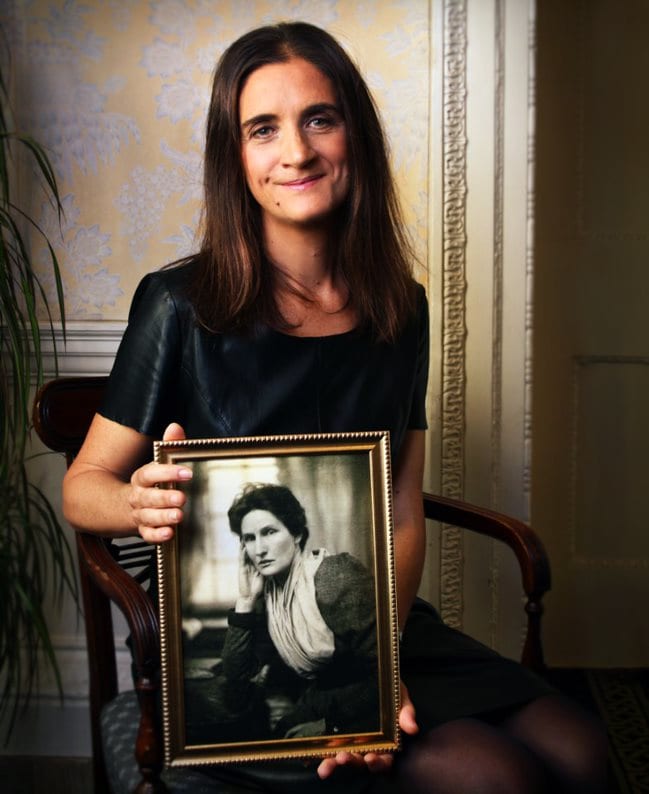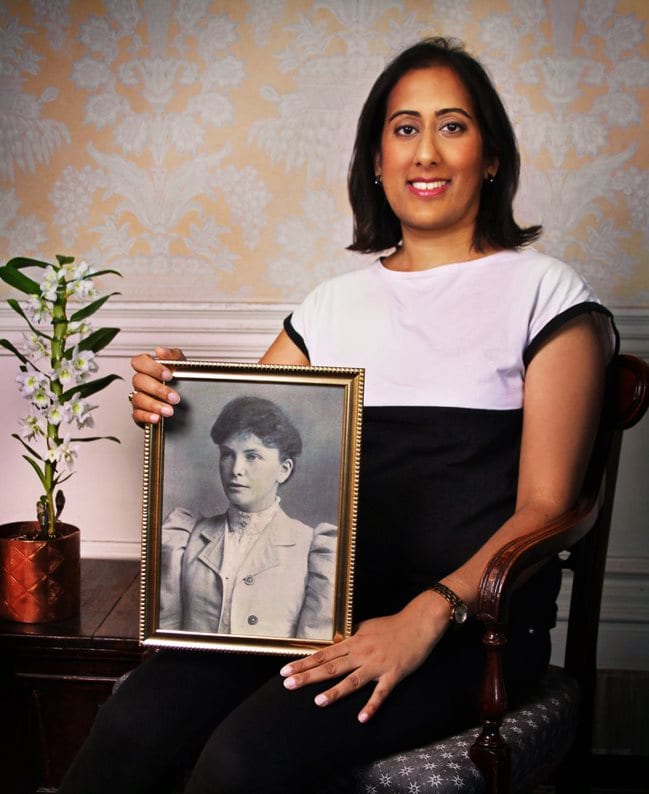Alumna Eboni Usoro-Brown (née Beckford-Chambers) (LLB 2009, MSc 2011), Solicitor, Team Bath netball captain and play for England talks to us about her time at Bristol and the career that’s led to this award.
You can hear Eboni Usoro-Brown in-conversation with The Rt Hon the Baroness Hale of Richmond DBE (Hon LLD 2002, Hon Fellow 2017) on Tuesday 11 May, 1 pm – 2 pm as part of the 2021 Alumni Festival. Click here for more information and to book your place.
The award
I’m really honoured to receive this award, especially given the calibre of the other recipients. I feel very privileged to even have been nominated.
Why Bristol?
I was first attracted to Bristol as a vibrant city with very welcoming people. I had been training at the Bath Netball Academy and the University of Bristol had an excellent reputation and was near to Bath. I liked the fact that the Bristol campus was part of the city as some university campuses can be quite isolated.
At the time Bob Reeves was the Director of Sport, Exercise and Health and he was one of the first in the University Sector to establish a sports performance programme for students, enabling them to fulfil their potential both academically and in sport. He wanted to attract elite athletes of high academic ability, and this allowed me to study law as well as continue my netball career. This was quite unusual as at most universities elite athletes study things like Sports Science degrees alongside their athletic commitments. I was drawn to studying law because my Dad is a lawyer. I also loved the debating team at school so law was a natural choice.
At Bristol pastoral support was offered to help manage my degree as well as my sport. I was given help to facilitate conversations with the academic tutors, to understand what I was doing. I was also able to access things like sports massage, sports psychology, nutrition and so on, which really helped my performance.
I’m so excited by the prospect of Bristol’s new Temple Quarter Enterprise Campus. Studying at Bristol was one of the best times of my life. If this experience can be expanded to more people, then that’s a great opportunity.
Advice to current students
Make sure you get involved in the city when you’re studying at Bristol. There’s such a buzz about Bristol, it’s a very multi-cultural city, throw yourself into it because your three years go by quickly.
Career
I started netball at primary school and began to take it more seriously at secondary school. I was scouted for England aged 15 at a game. In 2008 I got my first Senior cap and I have 96 caps so far. I want to get my 100th cap during the Netball World Cup in Liverpool in July. So far in my netball career I’ve played in two World Cups and three Commonwealth Games.
My Mum is a headteacher and she really encouraged me to try all sports at school. I initially liked netball because all my friends played and then I grew to love the teamwork and the strategy involved. All the games are different and tactical, you must constantly develop your skills.
Studying at the University of Bristol gave me the confidence that I could commit to both sport and study fully. When I later applied for a training contract with Bath law firm Mogers Drewett I already had proof that I could juggle both and so they were very supportive of me continuing my netball career as well as my legal career.
Bristol provided an excellent standard of education. It’s well-renowned, it has a good reputation. Wherever I go I’m met with approval when I say I’m from the University of Bristol. Bristol really helped develop my level of professionalism. I was given a great foundation in things like time management, discipline, determination. Staff like Matt Paine and Bob Reeves were instrumental in helping me network and make the right contacts in netball. And my Master’s degree is what made me really fall in love with Law as a subject and made me want to work in law.
Following my Master’s at Bristol I did my LPC at UWE and then spent four years in Australia playing professional netball while also working for law firm Allen and Overy. I then came back to the UK for my training contract with Mogers Drewett in Bath. Today I’m proud to say I’m now a fully qualified solicitor as well as about to embark on the Netball World Cup this summer.
The Bristol Reds sports awards and the #wearebristol campaign are phenomenal. They really make Bristol sit above other universities in their promotion of sports excellence.
Memories of Bristol
I knew from the start of my time at Bristol what my long-term goals were. I had to be very focused and disciplined. Everything was geared towards that. I had to develop extreme resilience. Sometimes it felt like the hardest thing in the world to keep everything going.
Highlights for me at Bristol were both my graduation ceremonies, from my LLB and MSc. I had spent so long in the Wills Memorial Building studying and working that it was wonderful to be there to finally have a moment of achievement. It was a big celebration for my family too. I enjoyed my MSc graduation in particular. My course was wonderful. I had such phenomenal, passionate teachers. I really enjoyed it. There was a real moment of ‘I did it’ at that graduation ceremony. A moment of realisation and recognition after working so hard.
Greatest achievement
I think my greatest achievement has been the level of resilience I’ve built. I’ve had to generate extreme levels of mental toughness and self-belief. It’s taken me 15 years to get a gold medal at the Commonwealth Games. You need real persistence to keep going.
Greatest challenge
I guess my greatest challenge is knowing when to say ‘no’ to things. I’m enthusiastic and ambitious but one needs to be careful not to get burned out. I need to learn to make myself less available sometimes.

